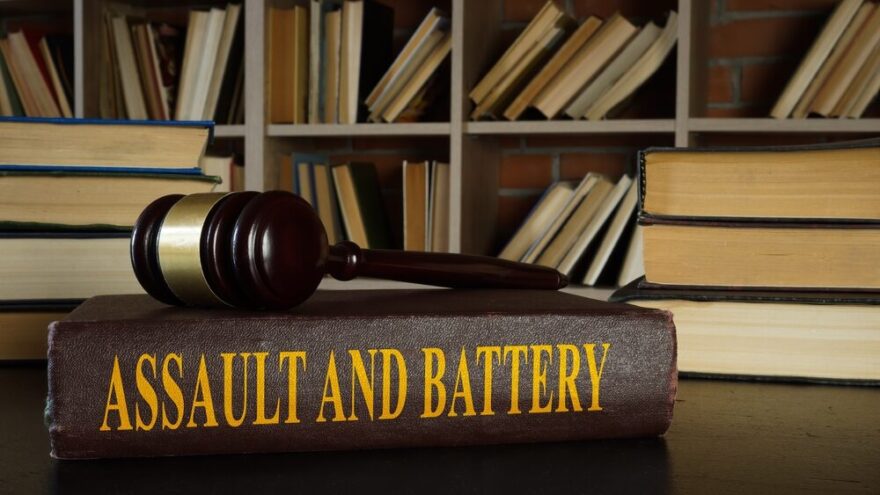Assault and battery are often used interchangeably, but they are distinct offenses under New Jersey law. Assault refers to the threat of physical harm or the creation of fear of imminent harm, while battery involves the actual physical contact with another person. Simple assault and battery charges are classified as disorderly persons offenses in New Jersey, which carry a maximum penalty of six months in jail and a $1,000 fine.
However, more serious assault and battery charges, such as aggravated assault, can result in higher penalties, including up to 10 years in prison and a $150,000 fine. Aggravated assault charges can be based on factors such as the use of a deadly weapon, causing serious bodily injury, or assaulting a law enforcement officer. If you are facing assault or battery charges in New Jersey, there are several strategies that your defense attorney may use to help you avoid a conviction and a permanent criminal record.
1. Self-defense
One of the most common defenses to assault and battery charges is self-defense. If you used force against another person because you reasonably believed that they were going to cause you harm, you may be able to argue that you acted in self-defense. To establish self-defense, you must show that the force you used was necessary to protect yourself from immediate harm and that you did not use more force than was reasonably necessary.
2. Lack of intent
To be convicted of assault and battery, the prosecution must prove that you intended to cause harm to another person. If you did not intend to harm the other person or did not realize your actions would result in harm, then you may have a valid defense. For example, if you accidentally hit someone while swinging your arms, you did not have the intent to harm them.
3. Consent
If the other person consented to the use of force, you may be able to argue that you did not commit assault or battery. For example, if you were engaged in consensual roughhousing with a friend, you may not have committed battery.
4. Defense of Others
Defense of others is a legal defense that justifies the use of force to protect someone else from harm. It requires a reasonable belief that the person being defended was in immediate danger and that the amount of force used was necessary and proportional to the threat.
5. Defense of Property
Defense of property is a legal defense that justifies the use of force to protect one’s property from theft, damage, or destruction. It requires a reasonable belief that the use of force was necessary to prevent the loss or damage to the property and that the amount of force used was reasonable and proportional to the threat.
6. Alibi
If you have evidence that you were somewhere else at the time the assault and battery occurred, then you can use an alibi defense. For example, if you were at work when the alleged assault and battery occurred, you can use time records and testimony from coworkers to prove that you could not have committed the crime.
7. Insufficient evidence
Your defense attorney may be able to argue that there is insufficient evidence to support the charges against you. This may involve challenging witness testimony or physical evidence, or arguing that the prosecution has not met its burden of proof.
8. Police Misconduct
If the police violated your constitutional rights when they arrested you or made procedural errors during the arrest or investigation, then any evidence they collected may be inadmissible in court. This can include evidence of the assault and battery.
9. Mistaken Identity
In some cases, the prosecution may have charged the wrong person with assault and battery. If you were not the person who committed the assault and battery, then you have a valid defense. This is especially common in cases where the victim did not get a good look at the person who assaulted them.
10. Insanity
In rare cases, insanity may be a defense against assault and battery charges. This defense strategy involves arguing that you were not in your right mind at the time of the alleged crime and therefore cannot be held responsible for your actions.
11. Plea bargain
If the evidence against you is strong, your defense attorney may recommend negotiating a plea bargain. A plea bargain involves pleading guilty to a lesser charge or accepting a reduced sentence in exchange for avoiding a trial and the potential for more severe legal consequences.
Contact The Law Offices of Michele Finizio Today for a Free Consultation About Your Assault Charge
If you are facing assault or battery charges in New Jersey, it is important to speak with an experienced criminal defense attorney as soon as possible. Your attorney can review the facts of your case, identify potential defenses, and work to protect your rights and interests throughout the legal process.
At The Law Offices of Michele Finizio, we understand that facing assault and battery charges can be a stressful and overwhelming experience. Our experienced criminal defense team is dedicated to helping you fight back against these serious charges and protect your future. With a proven track record of success and a commitment to personalized, compassionate representation, we have the knowledge and skills to help you achieve the best possible outcome in your case. Contact us today to schedule a free consultation and learn more about how we can help defend you against assault and battery charges in New Jersey.
The articles on this blog are for informative purposes only and are no substitute for legal advice or an attorney-client relationship. If you are seeking legal advice, please contact our law firm directly.


